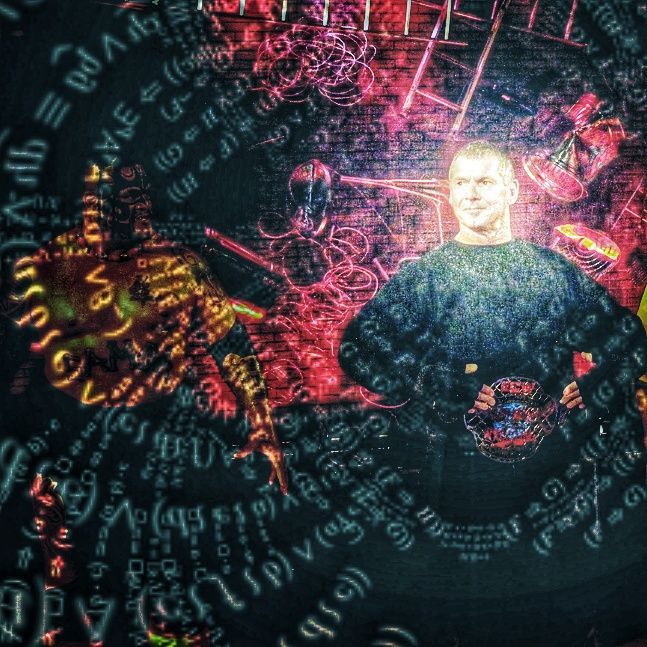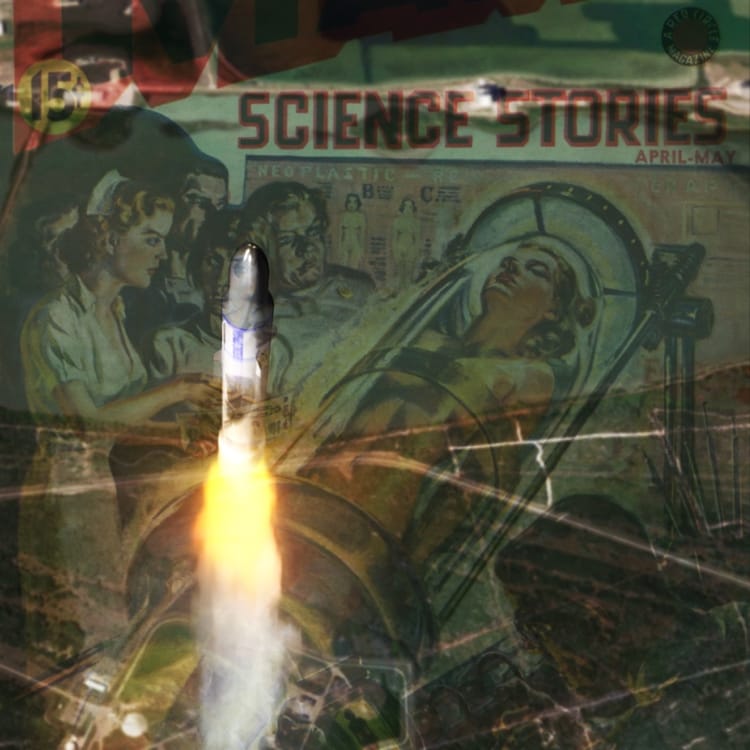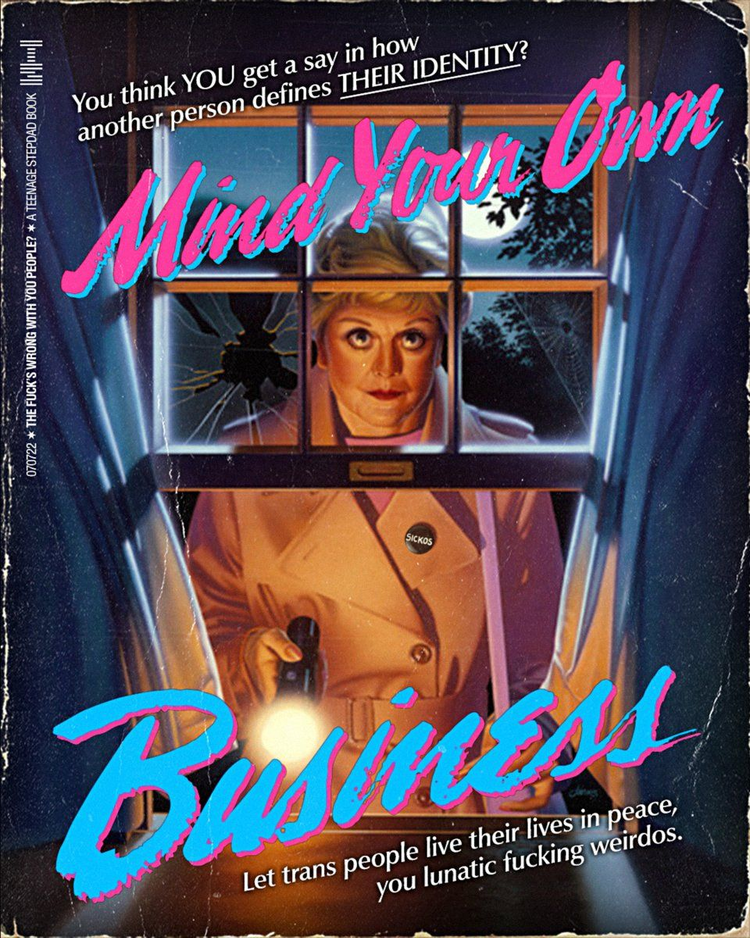The Ringmasters: An Interview with Josephine Riesman

What is the nature of reality? As we look out on the daily triumphs and trials of human existence, is what we see fundamentally what we get? Or is reality, in fact, a tantalizing and suggestive lie? A con job leavened with little breadcrumbs that can lead us to the truth?
These questions have long been the preserve of mystics and philosophers. Plato argued that our world was a degraded reflection of Heaven. The Gnostics preached that this depraved and fallen world concealed a divine light the Evil One had built existence to obscure. The Kabbalists wrote that all the torment and suffering of existence was but a mask for the face of God.
Once the preserve of study halls and college dorms, these questions have now escaped to squat at the heart of even the most serious political analysis. In the world of Russiagate and Q-Anon, we can connect this notion of a hidden reality, obscured by official-seeming lies, with the idea of the world as a nesting doll of elite conspiracies — offering the possibility that by scrying the castings left by the underground movements of unseen forces, we can figure out what's really going on.
Welcome to Heat Death, the newsletter that knows about the importance of cutting a promo.
Vince McMahon is one of the architects — perhaps the architect — of modern professional wrestling. The longtime owner and chief creative authority of World Wrestling Entertainment, he began his career as a commentator for his father's company — then known as World Wide Wrestling Foundation — in the late 60s before purchasing it in the early 1980s. From there, he turned the business into a virtual monopoly, becoming a billionaire.
To the uninitiated, McMahon might seem like a niche figure. But under his tenure, the WWE survived the revelation that matches were scripted — not legitimate sporting competitions, but "sports entertainment" — and became a cultural juggernaut in the 1990s and early 2000s, glorying in racial and sexual stereotypes and aggressive hypermasculinity. Not content to manage his empire from behind the scenes, McMahon placed himself front and center in televised shows, generally playing a villainous caricature of himself — his rubber face contorting into pop-eyed stares, imperious sneers, and savage snarls.
McMahon's also shown a certain cockroachlike resilience — after stepping down as chairman of the WWE amid serious sexual assault allegations in the middle of 2022, the 83-year-old made a surprise reappearance as chief executive at the beginning of this year, apparently forcing out his own daughter who'd been running things in his absence.
As journalist Abraham Josephine Riesman argues in her upcoming book Ringmaster: Vince McMahon and the Unmaking of America, McMahon is a quintessentially American hustler — one whose machinations have contributed to the injection of a particular flavor of carnival unreality into American life, sped along by the election of his longtime friend, Donald Trump. McMahon, Riesman argues, found in the rough and tumble hypocrisy of professional wrestling a kind of pop-culture gnosis that has expanded to take over the discourse. In doing so, he opened the portal to our modern post-truth age — the doorway that has sucked in people of all political stripes and savviness.
"He's not just wrestling," Riesman told Heat Death. "He's such an emblematic figure of that particular turn toward the unreality of right-wing politics in contemporary America, where you're constantly hearing politicians saying knowingly ludicrous stuff."
Riesman is a journalist and the author of True Believer, a biography of Stan Lee, and several years' worth of articles on comics and pop culture for New York Magazine. We caught up with Riesman — who uses she/her pronouns — for a wide-ranging conversation about the corrosive effects of knowing unreality, camp masculinity, wrestling slang, the fascist embrace of "kayfabe," and more. The conversation has been edited for flow and length.
What's your history with wrestling?
Abraham Josephine Riesman: I grew up watching it. I remember being — God, I must have been six or seven, seeing late-stage WWF Hulk Hogan, Bret Hart, and the 1-2-3 Kid [Sean Waltman]. I remember thinking that name was cool.
I was so into Hulk Hogan ripping his shirt apart that I asked my mother if she would get me a tearaway t-shirt, thinking that was just the kind of thing that existed. And God bless her, she cut a slit down the middle of a regular t-shirt, put in little holes on either side of the slit, and strung through some shoe lacing so I could pull it. It would separate, and then I could tighten it and bring it back together. I dedicated the book to my mother because of that — but it was only a relatively minor engagement with wrestling.
I started watching wrestling seriously in the spring of 1999. That was during the birth of the so-called Attitude Era, the 'Stone Cold' Steve Austin period in wrestling. All my bullies loved Stone Cold Steve Austin, and they loved wrestling. I was like: obviously isn't for me. I'm not going to be into the stuff that people calling me names are into.
And then, when I was 13, finishing up the spring of my seventh-grade year, my best friend caught an episode of "Monday Night Raw" just flipping through the channels. And he started watching and was like: No, you gotta check this out. It's not what you think it's. It's something weird and wonderful. So I started watching. And then gradually watched more and eventually started watching pay-per-view events with my former bullies. It was this real orientation experience for what teenage boydom was supposed to be at the turn of the millennium.
You talk a lot about the concept of "kayfabe" in the book. Kayfabe, for those who don't know, is a particular bit of carny/wrestling slang of uncertain origin: it's what you call the state of pretending that staged events, like carny wrestling, are real. How does that play into the story you're trying to tell?
Well, kayfabe is a concept that has been in wrestling for over a century, but it's evolved a lot. Initially, it just referred to the public-facing fiction that pro-wrestling was a legitimate sporting competition when, in reality, it's staged and predetermined. But there had been the public revelation that wrestling wasn't really in the pages of the New York Times and New York Post in 1989. And people really caught on.
So that should have killed kayfabe, right? The secret's out.
Well, Vince McMahon killed it. He created this new form of kayfabe that is not about pretending wrestling is a legitimate sport. Here's all the behind-the-scenes stuff that's really going on. And it's rarely what's really going on.
As in this wrestler is feuding with this other wrestler, this person's out of favor with Vince as opposed to that person, all the supposed gossip about the backstage business?
Yeah. What I find most interesting about Vince McMahon is that he manipulated how you interact with his product: you're operating in this world where it's no longer expected that you'll have the truth. And that's the essence of the new form of kayfabe that Vince helped pioneer and then single-handedly enshrined as the main tenet of modern wrestling.
I coined a term in the book, which is neo-kayfabe. Neo-kayfabe is what politics — as well as wrestling — is now. You have this baseline assumption that the people talking to you are lying to you — or at least not telling you the full truth. It's a big jumble of truth and lies. And you basically can have one of two responses to a big jumble of truth and lies, and they're both things reflected in contemporary politics. Either you go: I don't know what's true and what's not, but this is very entertaining, so I'm just gonna let it wash over me, which is a huge part of the Trump phenomenon.
Or you do the Russiagate approach, which is: I'm going to pick apart everything that's true from everything that's false. I'm going to pay attention to all the little details and the signals, and I'm going to be the one who susses out what's true here.
And, of course, you can't. It doesn't work. You might accidentally stumble on the truth. But there are still going to be self-deceptions that you trick yourself into because you're convinced that you're the one who can parse it. And that's QAnon. That's even just casual MSNBC or Fox news watching now. 'OK, well, I'm assuming this politician is lying to me. But that lie tells me something about the truth.'
It's such a dangerous path to walk. Because as soon as you're starting to deal with that kind of untruth mixed with truth, you end up with a world of chaos. And the people who thrive in chaos are fascists. Because fascism is not an ideology that's based on logic — it's based on unreason and excitement, and that's what wrestling does.
Both are explicitly a vibes-based phenomenon.
Yes, yes, yes. Wrestling is all about vibes — nonsensical but exciting. And we are currently in a world based on a vibes economy.
You talk a lot in the book about two other particular bits of wrestling terminology that relate to kayfabe; "marks" and "smarts." Can you unpack that slang for us?
In the old form of kayfabe, wrestlers and promoters — the people who run the wrestling promotions — would talk about wrestling fans as falling into one of two categories. There were the "marks," which means people who they've convinced that wrestling was a legitimate competition. And "smart" was the population who understood that wrestling was not a legitimate sporting competition. They were the ones who'd been "smartened up" and knew what was going on. Or at least thought they did.
And, of course, that breakdown is not as simple as it might seem. One of the conclusions I came to in the book was that we never had a majority population of true marks in the United States.
Really?
The wrestlers and the promoters would tell themselves that most of the audience believed what was going on was a legitimate competition. But if you interview people who were actual wrestling fans back then — which I did — a large portion of them will tell you: Oh, I knew it was fake. But I loved believing in it. It was really exciting to lose myself in this unreality and accept the illusion being presented to me. But I knew, on some level, it was an illusion. I didn't know exactly how the trick was being done, but I knew it wasn't all on the level. And yet, I loved it anyway.
And that's the essence of a third term, which emerged in the late 20th century, which is a "smark." And a smark is somebody who is smart to the business, knows that it's fake, but still gets really excited about it. They like to lose themselves in the unreality while also paying attention to what they think is going on behind the scenes.
People who still get involved in politics and have not completely checked out, you tend to be a smark. You're like: Yeah, I know, this is largely bullshit. But this candidate, or this issue or whatever, is exciting, and I want to see it succeed. You saw it a lot with the Bernie campaign, for example. And I have a lot of affection for Bernie and Bernie's followers. But this cult of personality sometimes got set up where people would convince themselves that Bernie was an easy win. You know? Either he was going to definitely win the primaries, or he was going to definitely win the general.
This is not even me saying, "screw Bernie people." This is how politics works. You work yourself into a shoot.
"Shoot" and "work" are also wrestling slang you should describe for us.
In wrestling, a "work" is something that is faked, and a "shoot" is something that is real. Of course, actually determining what's the work and what's the shoot can be very difficult. But the terminology exists because, theoretically, you can separate the two out. You can go: Oh, well, that time that he punched that guy in the ring, that was the shoot because he really did hate him, and he punched him in the ring. But the rest of the match was work. You can really confuse yourself.
But one of the reasons the terms "work" and "shoot" are considered so useful is because of a phrase that Vince is often credited with coming up with: "working yourself into a shoot." That's when you start with a principle: OK, I'm doing this fake thing. And then, the more you do it, the more you convince yourself it's real. You've suddenly gone into a zone where you really believe in what you're doing, even if it began as something silly.
And honestly, that's something that has run through all of my work, that balance of: "Is this a joke, or is it not?" That's one of the reasons why superhero comics and wrestling have so much overlap with fandom is because, like wrestling, they're all based on bizarre spectacle. Excitement, spectacle, bright colors, thrilling things, and bizarre, out-there plots or plot twists. And that's something that people really gravitate to: the uncanny, the weird.
There's also a persistent strain of neo-kayfabe in comics fandom. People aren't just interested in what the fictional superheroes are doing. They also want to try and suss out the editorial mandates behind them. They want to know which creators are gonna be on a given book and why.
You're completely right. With so many entertainment industries now, people are experiencing that neo-kayfabe. One of the best examples of neo-kayfabe is not even in wrestling. It's the Marvel Cinematic Universe. When you see these behind-the-scenes interviews with MCU actors, they're still reading from a script — the idea that Tom Holland is constantly spoiling the movies, or that Ryan Reynolds and Hugh Jackman are having a goofy feud. It's all manufactured. Or it's truth mixed in with fiction, or it's a truth that's spun. But people really get lost when they're told: OK, what you saw in that movie was fake, but what you're seeing in this interview is real. People will really get suckered by that.
And I mean, I've been suckered by that countless times! Because it's all you have to work on. It's not like you have extensive reporting on every single celebrity by investigative journalists with serious training. Most entertainment journalism these days is just aggregation and spot interviews on red carpets or in press junkets because all this stuff is tightly controlled now. The narratives go beyond just the ones in the movies. They're also about getting people involved with the actors and with the directors.
The directors whom — we are constantly assured — definitely had a significant artistic hand in these factory-produced movies.
Another classic example. The average MCU director has very little artistic leeway. They do not actually get to be auteurs. But it's a big part of the mythos that this is a Taika Waititi MCU movie, like Taika really put his spin on it. I'm sure he did, but it's not fully Taika Waititi's movie. You just tell yourself that, and it's exciting.
The pervasive unreality of all this makes people cling to their manufactured reality even harder. You know that politics is bullshit, and you kind of know that movies are bullshit. But you want to believe that something's real. And you cling harder to the thing you want to think is real because you know in your heart that it isn't.
Yes. Yes. Now, I'm not a psychologist; I'm not a neuroscientist; I did not get into the mechanics of how the brain works with kayfabe. But just from having it happen to me, being a wrestling fan back in the day — but also from journalism — you see that, in aggregate, people really want to believe that at least a couple of things are true. Whether that's about an entertainment property, your religious philosophy, or politics. You want to hold on to this one thing.
And I should be clear: I'm not criticizing anybody for falling for kayfabe, or neo-kayfabe, or whatever, because you have to. That's the perverse flipside of this. If you don't adopt kayfabe in your life, you go crazy.
Right. Exactly.
If you don't have some belief that not everything is bullshit, then you're gonna lose your mind. You need to think that some things are true or reliable in order to function. The essence of thinking there are things worth preserving is thinking that there are things that are true. And sometimes, that truth is something you can't prove, and you just have to force yourself to believe it. And so I think you just have to pick your kayfabe carefully — try to pick one that doesn't harm other people.
So the book is about wrestling, but it's also about just the predicament of being alive and trying to sort through the blizzard of true and false information you face every day and in contemporary life.
All of this reminds me of the very famous Sartre quote about anti-Semites, from Anti-Semite and Jew. He remarks that anti-Semites know their rhetoric is absurd and open to challenge but that they're "amusing themselves, for it is their adversary who is obliged to use words responsibly, since he believes in words. The anti-Semites have the right to play. They even like to play with discourse for, by giving ridiculous reasons, they discredit the seriousness of their interlocutors."
Sartre was onto it. Even though he wasn't writing about wrestling, he may as well have been. An anti-Semite is somebody operating with unreason, who is going with something that provides simple answers to complicated questions. And very often, the simple answer is just this kind of middle finger to sincerity, you know? It's like the old Bush administration quote.
Yeah, I know that one. A Bush administration guy — generally speculated to be Karl Rove — told a reporter that liberal critics live in "what we call the reality-based community," i.e., people who try and figure out what to do based on the study of discernible reality.
But that's not the way the world really works, this administration guy says. "We're an empire now, and when we act, we create our own reality. And while you're studying that reality—judiciously, as you will—we'll act again, creating other new realities, which you can study too, and that's how things will sort out. We're history's actors...and you, all of you, will be left to just study what we do."
Which turned out about like it turned out. But he was also right—they acted, damn the facts, and created a new reality.
Yeah. When you're operating in this reactionary fascist context, you don't have to make sense, and you don't have to tell the truth. The only truth for them is self-interest.
More than that, it's an expression of power. Not just that they don't need to tell you the truth, it's that they'll create their own truth — one they know is not true. But you're gonna have to fucking deal with it anyway.
Yeah. "Everyone else is bound by reality. But our magic is that we create reality."
And this brings us to the Trump factor. Vince and Trump are extremely close friends. To the extent that Trump has friends, Vince is very close with him. And Trump learned a lot from wrestling. Trump has been watching wrestling since he was a child, watching Vince McMahon's father's wrestling back in the '50s. He's been an avid wrestling head for a long time — he hosted two Wrestlemanias, he appeared in one WrestleMania as a performer, all of this stuff.
Trump is this emissary into politics of the most extreme form of Vince McMahon-type neo-kayfabe. You say stuff that's completely preposterous but has something resembling a grain of truth. And that's all that Trump's allies need. They need some kind of line, they need some kind of catchphrase for whatever scandal or issue is coming up, and they can just repeat it ad infinitum. And lots of people will buy it! It's creating a new reality out of falsity, because you end up with all those instances of Trump or some other right-wing politician just not understanding something and saying something wrong. Or lying.
And then everyone has to pretend that that's a legitimate opinion. Everyone has to pretend that: Oh, this is something worth debating.
It remains interesting to me that people kept trying to fact-check Trump. You can't fact-check neo-kayfabe: it's like trying to fact-check a dog. It just misses the point of the entire exercise.
Right. Fact-checking is still the main weapon that the average #Resistance person will deploy — and even beyond people who are just mainstream liberals. Just go on Twitter, go on any social media network. You will see anytime a right-wing politician or Elon Musk — who may as well be one — says something outrageously false, you see people going like: "Oh, well, that's not true" or "you're being hypocritical."
It's 2023. Calling people out on hypocrisy accomplishes nothing. It hasn't accomplished anything! And we're still doing the fact-checks! And we're still doing the compare and contrast between ridiculous statements that have no consistency. I don't know how to get out of that. But it's going to have to involve ideology and kayfabe of our own. It can't just be fact-checking.
It isn't just be Trump, though. There's clearly a constituency for this style of politics.
I interviewed a Republican operative about my age during the Trump administration while researching the book, and I asked what the vibe for wrestling in D.C. is these days. And this person said that during the Obama era, every political operative talked about baseball or basketball — baseball being the traditional D.C. sport, and basketball being something Obama was really into. But once Trump got there, it was all wrestling.
I'm sure that's an exaggeration. But the Trump administration was kind of when you open the floodgates to a lot of millennial conservatives. And millennial conservatives, a lot of them grew up watching Vince's shows. They were really shaped by it. You have to understand: if you were a boy-identified person at the turn of the millennium, 11-16 or so, you were the target market for wrestling. Wrestling was so popular. A major poll I cited in the book said that 20 percent of Americans identified as wrestling fans, which is still a minority, but it's an insanely huge minority. And those are just the people who identified as fans. You couldn't help but be exposed to it. A lot of people learned lessons — myself included — from watching wrestling at that age.
So you have a massively popular and addictive entertainment people are watching as teens, and that's a really formative age for your political ideas. So even if you didn't learn political ideologies from it — although you could, because there was plenty of racism, misogyny, homophobia, etc. — you learned that you could get away with this fantastic mix of reality and unreality.
I always come back to the emergence of millennials in the political scene, like Elise Stefanik, who I went to college with, and who is a right-wing nut job. [Editor's note: Though it didn't come up in this interview, Stefanik is a New York house Republican that was a major early supporter of George Santos, another millennial politician and frankly dizzying serial liar.] You have people in corporate America my age who are starting to assume positions of power. And I think it's probably going to get only more pronounced as time goes on, especially if you have another Republican president, God forbid.
There's a lingering thread of sexual violence in Ringmaster, beginning with strong indications that McMahon was himself assaulted as a child and then the news last year that he was accused of rape by Rita Chatterton, the WWE's first female referee. Trump, of course, has also been frequently accused of assault.
There's a long history of sexual misconduct in wrestling. And I think part of that is just that there is sexual misconduct in every industry, very sadly. I'm reluctant to come up with a grand unified theory because I think a lot of it, unfortunately, is just that this is what powerful men do in any industry.
But what's interesting about wrestling, I think, is there's this deep contradiction, this anxiety that's implicit there. Daniel Lavery coined the term "heterosexual camp" years ago and used Dwayne "The Rock" Johnson as an example. You have this really over-the-top performance of masculinity. But at the same time, everybody's wearing bright colors, the men are barely wearing any clothes, they're really sculpted, and they're touching each other. Most importantly, they're showing pain, or at least faking pain, which is not something that men are supposed to do. And you end up with this very queer art form that is, nonetheless, really trying to convince itself and convince you that it's masculine, that it's conventional, that it's normative.
It's no coincidence that the week I finished the first draft of Ringmaster was the week I came out as trans, because I was spending all this time thinking about cis-hetero camp and my relationship with it. That anxiety about the fact that you're doing something that's flashy and campy, while at the same time telling yourself that you're a real man's man? Maybe that's a contradiction that can motivate people to do bad things. I'm not a psychologist. It'd be hard for me to prove that. But it could very well be the case that that tension is part of why bad things happen.
Yeah. It's easy to get trapped in the neo-kayfabe with Trump, for example, and speculate about what exactly his deal is with women. But what's always struck me about it is that the way he talks about women is very strange. It's sexual, but there's no —
It's sexual, but it's not hot.
Exactly.
The way Trump talks about women is very similar to the way the Mr. McMahon character that Vince McMahon plays historically talked about women. Not so much anymore. It's really lascivious, but it's about power. It's performative, and it's about power and machismo. It's not about sex. And there's nothing sexy about the way Trump or Vince talk about women — it's not to describe beauty, it's not to describe attraction. It's to describe the power relationship.
A woman as an object that you have around because that's what a "man's man" does.
Yeah. I mean, in wrestling, you'll have like a sexy lady manager for a male wrestler. She's there as adornment and as a plot device. She is not there as a true partner most of the time. She's an accouterment! She's something on the side that's there because that's what a cishet man is supposed to have. You're completely right.
You spend a lot of time in Ringmaster discussing the style and culture of wrestling leading up to the turn of the millennium. To what degree has the industry changed?
There's less overt bigotry, and that's not used as a selling point the way it used to be. There's a lot less blood as well. A lot of things changed after the murder-suicide of Chris Benoit, a very respected wrestler who killed his wife and young son and then himself in 2007. It led to this huge public backlash. That was one of the rare times that Vince has been somewhat chastened by the public, as opposed to just sort of continuing with what he wants to do.
There are less out-and-out homophobic slurs and misogynist nonsense, too. But it's still all coded in there. I mean, it's not an egalitarian workspace. There's no union. Promoters still get to call the shots, and the people in charge still get to hold the cards.
The neo-kayfabe aspect of it's more prevalent than ever because of the internet and social media. Everything is now wrestling gossip that you can chew on. You watch wrestling now in an effort to try to decipher it and decode it. And that's become the essence of why people watch wrestling. Yes, people want to see the athletic events, and yes, they want to see the storylines, but what they really want to do is kind of parse it — if you're an adult fan of wrestling, you're watching because of the neo-kayfabe now.
And in the age of social media, the search for some elusive truth amidst the lies has only become more urgent for people. And when you're desperately searching for truth, you can often get sold a long bull of goods. And it's unfortunate. But that's the world that Vince made.
Thanks for coming on, Josie.
It's been a pleasure!
Josephine Riesman is a journalist and author. Her new book Ringmaster: Vince McMahon and the Making of America releases on March 28th: you can preorder a copy right here. You can also find Riesman on her website.
That's Heat Death, everybody. If you like our work, why not grab a paid subscription and help keep us going?





Member discussion